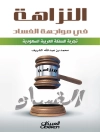The United States Constitution is a short document, and it is written in general language, which leaves much of the meaning unwritten and open to interpretation. Dig into this important document and watershed in the history of governments!
Explore the history, the various clauses, amendments, and interpretations. Understand your rights (and responsibilities)! From the Constitutional Convention to the creation of the Constitution and its eventual ratification, and to the Bill of Rights and the thorny constitutional issues of today, The Constitution Explained: A Guide for Every American covers the history, our founding fathers’ goals, and the varied interpretations of the Constitution that have informed the politics and functioning of the U.S. government. You’ll discover …
A guide to the citizenship and the American government, The Constitution Explained sheds a light on the differing and changing interpretations of the many broadly worded key phrases in the Constitution. You’ll learn how the Constitution has been adopted to different times and various situations. You’ll learn what it does—and does not—promise U.S. citizens. Richly illustrated, it also has a helpful bibliography, glossary, and extensive index. This invaluable resource is designed to help you understand the power and strength of the U.S. Constitution!
विषयसूची
About the Author
Acknowledgments
Preface
Introduction
1. Overview, history, and contemporary relevance of the U.S. Constitution
2. Constitutional Law Toolkit, key terms and methods of interpretation
3. The Articles of Confederation
4. The Philadelphia Convention
5. The Ratification Process – Addition of the Bill of Rights
6. Article I and the Powers of Congress
7. Article II and the Powers of the Executive (Presidency)
8. Article III and the Powers of the Judiciary
9. Other Articles – Amending the Constitution
10. First Amendment Freedoms
11. Second Amendment and the Right to Bear Arms
12. Fourth Amendment
13. Fifth and Sixth Amendments
14. Eighth Amendment and the Death Penalty
15. Fourteenth Amendment: Equal Protection and Due Process
16. Nineteenth Amendment and Amendments Dealing with Voting
17. Amendments Dealing with Presidential Succession
18. Current Constitutional Controversies
Glossary of Terms
Further Reading
Index
लेखक के बारे में
David L. Hudson, Jr., J.D. is an Assistant Professor of Law, teaching First Amendment Law and Bar Exam Workshop at Belmont University’s College of Law. For 17 years, he was an attorney and scholar at the First Amendment Center in Nashville, Tennessee. Hudson also has taught classes at Vanderbilt Law School and the Nashville School of Law, and he served as a senior law clerk for the Tennessee Supreme Court. In June 2018, the Nashville School of Law awarded him its Distinguished Faculty Award. He earned his undergraduate degree from Duke University and his law degree from Vanderbilt Law School. He is an author, co-author, or co-editor of more than 40 books, including Visible Ink Press’s The Handy Law Answer Book, The Handy Supreme Court Answer Book, and The Handy American History Answer Book, as well as Let The Students Speak: A History of the Fight for Free Expression in American Schools and The Encyclopedia of the First Amendment (co-editor). He writes regularly for the American Bar Association’s Preview of United States Supreme Court Cases and ABA Journal, the First Amendment Watch, and the Free Speech Center.












